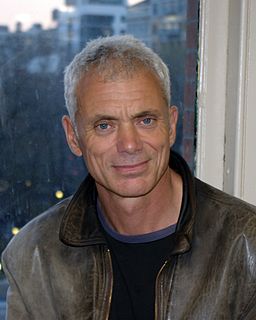A Quote by Gaston Bachelard
Reverie is not a mind vacuum. It is rather the gift of an hour which knows the plenitude of the soul.
Related Quotes
The reverie we intend to study is poetic reverie. This is a reverie which poetry puts on the right track, the track an expanding consciousness follows. This reverie is written, or, at least, promises to be written. It is already facing the great universe of the blank page. Then images begin to compose and fall into place.
A universe comes to contribute to our happiness when reverie comes to accentuate our repose. You must tell the man who wants to dream well to begin by being happy. Then reverie plays out its veritable destiny; it becomes poetic reverie and by it, in it, everything becomes beautiful. If the dreamer had "the gift" he would turn his reverie into a work. And this work would be grandiose since the dreamed world is automatically grandiose.
Here we are at the very core of the thesis we wish to defend in the present essay: reverie is under the sign of the anima. When the reverie is truly profound, the being who comes to dream within us is our anima. For a philosopher who takes his inspiration from phenomenology, a reverie on reverie is very exactly a phenomenology of the anima, and it is by coordinating reveries on reverie that he hopes to constitute a "Poetics of reverie". In other words, the poetics of reverie is a poetics of the anima.
The first step of gratitude is to see the gift...if you are in the middle of difficulties and problems, how can you feel gratitude? You've got to fight to find the gift even in the difficulty...when you shift your perspective from the perspective of the mind because life will never make sense to your mind...mind is very logical and life is not. In order for life to make sense you've got to be out of your mind and you've got to be into your soul. When you begin to see life from the perspective of your soul then even in the midst of the worst of it you can see the gift.
Imagination is the organ through which the soul within us recognizes a soul without us; the spiritual eye by which the mind perceives and converses with the spiritualities of nature under her material forms; which tends to exalt even the senses into soul by discerning a soul in the objects of sense.
It is quite evident that a barrier must be cleared in order to escape the psychologists and enter into a realm which is not "auto-observant", where we ourselves no longer divide ourselves into observer and observed. Then the dreamer is completely dissolved in his reverie. His reverie is his silent life. It is that silent peace which the poet wants to convey to us.
The demands of our reality function require that we adapt to reality, that we constitute ourselves as a reality and that we manufacture works which are realities. But doesn't reverie, by its very essence, liberate us from the reality function? From the moment it is considered in all its simplicity, it is perfectly evident that reverie bears witness to a normal useful irreality function which keeps the human psyche on the fringe of all the brutality of a hostile and foreign non-self.


































